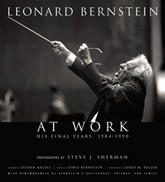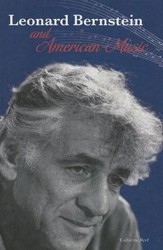When Barry Seldes, a political science professor, examined the FBI’s files about Leonard Bernstein, he came to see the musician’s politics as the key to understanding Bernstein’s life and career. Seldes’ book is rich in new details about Bernstein’s political engagement, but the writer’s conclusions tell us more about him than about Leonard Bernstein. His account borders on melodrama as he invests small details with exaggerated significance.
During World War II, Bernstein “answered affirmatively to an appeal by [singer] Lily Pons to lend his presence to an exhibit of photos of Nazi atrocities”; for Seldes this is an example of “an active political life.” Seldes reports as fact that CBS Radioblacklisted Bernstein in 1950, and then cites only circumstantial evidence: what the author darkly calls “the congruence of corporateinterests” between CBS and the New York Philharmonic, and a statement that some people listed as Communist sympathizers in the notorious publication Red Channels were later blacklisted. To Seldes it was nothing less than a “living hell” when Bernstein’s passport was not renewed for a few weeks until he signed an affidavit that he was not a Communist. Decades later, Seldes is certain that Bernstein would have been subject to government prosecution had J. Edgar Hoover lived longer and had Richard Nixon remained in office.The writer often uses neo-Marxist language, talking for instance about the Vietnam War as a means “to ensure the free flow of global capital.” No wonder he imagines that a Bernstein opera would have had “a narrative of injustice within the American historical trajectory,” and that Bernstein failed to leave behind a major opera for lack of the right, “politically grounded” text in a socially fragmented era. But great composers have often written memorable operas with routine librettos, and the unstable decades before World War I yielded great, socially engaged art. Seldes’ political beliefs aside, he often falls short in his understanding of music and Judaism. He misconstrues the origins of the “Din-Torah” in Bernstein’s Kaddish Symphony, and his writing about instrumental music is detached and generic compared to his comments about musical texts and about literature generally. These are small reservations, however, compared to a reductionist approach that continually confounds more than it clarifies. Index, notes, photographs.
Bob Goldfarb is President Emeritus of Jewish Creativity International.





